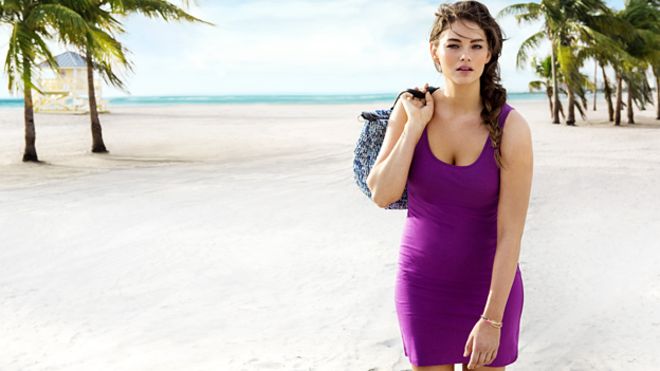H&M’s new ad campaign launched and (yay!!) the brand featured a wider representation of what it is to be a woman or girl in our society. We saw a great variety of behaviors and bodies that aren’t normally portrayed accurately, or often, in the advertising industry and the media.
H&M, like a whole host of other brands, has embraced the trend of body positivity and women’s empowerment. In the past few years, we’ve seen campaigns from brands like Dove, Aerie and Always too.
You can’t just advertise better; you have to do better.
I’m all about representation in the media. If I can see myself in commercials or magazines, it makes me feel like a part of society. Whole portions of our population don’t have the same opportunity, whether it’s because of size, color, orientation or being differently abled.
But does H&M just talk the talk of body positivity, or does the company back it up?
The H&M campaign features body positive model Ashley Graham and touts new plus size clothes. Ironically, H&M plus is rarely available in stores and the entire plus size collection being advertised will only be available online.
H&M and other brands have caught on: Body positivity is a new advertising strategy, and they’re all jumping on board. These brands think that they can tell us what we want to hear without really doing anything to back it up.
As someone who isn’t technically “plus sized” by the fashion industry’s standards, I have a hard time squeezing into H&M’s clothes, even when they’re double the size I normally wear. This ad campaign doesn’t change anything: I still can’t try on clothes that fit me in their stores.
H&M is trying to get brownie points for advertising what consumers want to hear, without backing it up with their actions. “We’re body positive” they say, while relegating plus size clothes to the corner in a fraction of their stores, or a page on their site.
If you want girls to genuinely like your brand and shop in your stores, clothes that fit a wider range of bodies have to be sold in the actual store.
Dear “body positive” brands with your “woman empowerment” advertising: you can’t just advertise better; you have to do better.








